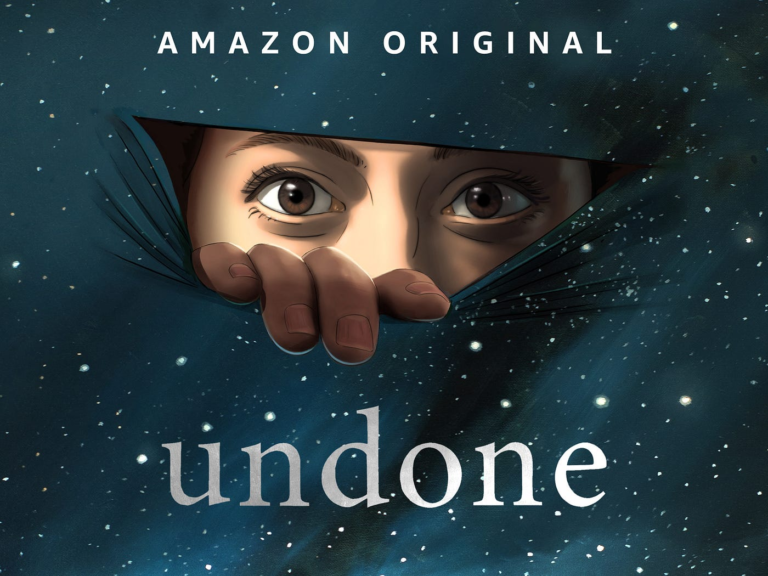Wildflower Christian Review

Wildflower is a story brimming with intention, heart, and a gentle push to see family not as an abstract institution but as the quirky, frustrating, and sometimes infuriating group of people that God weaves into the fabric of our lives. It is, in its bones, a coming-of-age tale wrapped in the kind of chaos that only a family can generate, sprinkled with moments of sweetness and those heart-tugging twinges of regret that make you wish you had hugged your mom a little tighter last Thanksgiving.
The movie doesn’t arrive quietly—it wants to make you think about representation, growth, and the nature of gratitude. And yet, for all its ambition, it stumbles. Like an awkward dinner table prayer, it’s sincere but occasionally uneven. For those coming to this story with a Christian perspective, the film leaves plenty to chew on: questions about the value of each person, the power of grace, and the eternal truth that no family is too broken for redemption.
Family as God’s Canvas: The Beautiful and the Broken
One of Wildflower’s greatest strengths is its unflinching look at the concept of family. But let’s not romanticize this too quickly. It’s not the sitcom variety of family where every problem gets wrapped up in 22 minutes with hugs and laughter. No, this family is messy—bickering, flawed, and more than a little overwhelming. And yet, isn’t that closer to the biblical vision of family?
Scripture paints families as a mixed bag. Cain and Abel? Not exactly role models. Jacob and Esau? A wrestling match in human form. And let’s not even get started on King David’s household. Yet through all this, we see God working. In Wildflower, we’re reminded of this truth: families are not perfect, but they are God’s design for love, forgiveness, and growth.
The movie thrives when it leans into this messiness. The relationships feel real, raw even. There’s a tension here that many will recognize, especially those who’ve grown up with the kind of relatives that make you laugh and cry in equal measure. It’s a celebration of imperfection and the strange, unbreakable ties that keep us coming back to one another.
Kiernan Shipka: A Glimmer of Light in the Chaos
Leading this emotional parade is Kiernan Shipka, who delivers a performance that feels both vulnerable and strong. She plays a young woman on the cusp of adulthood, juggling the weight of her unconventional family with the universal challenges of figuring out who she is. Her character, like so many of us, is trying to make sense of her world without losing sight of the people who shaped her.
Shipka’s portrayal carries a quiet strength, but the unevenness of the script often leaves her grasping for consistency. As Christians, we can appreciate her character’s resilience and grace under pressure, qualities that reflect the fruit of the Spirit (Galatians 5:22-23). Still, the story’s tonal shifts sometimes distract from the depth Shipka tries to bring, leaving moments of her journey feeling underexplored.
Representation: A Double-Edged Sword
One of the film’s central themes is representation, particularly of individuals with disabilities. This is where Wildflower both reaches for something profound and stumbles over its own feet. The intention is noble—to shine a light on underrepresented voices and bring their stories to the forefront. Yet the execution falters.
Too often, the disabled characters in Wildflower feel less like fully realized individuals and more like stepping stones for the protagonist’s growth. This creates a tension that Christian audiences may find unsettling. If we believe that every person is made in the image of God (Genesis 1:27), then each character deserves dignity and depth, not just a supporting role in someone else’s story.
The Bible calls us to see every individual as fearfully and wonderfully made (Psalm 139:14), with lives that matter in and of themselves. While Wildflower tries to honor this truth, it doesn’t always succeed. The result is a film that raises important questions about inclusion but doesn’t fully deliver on its promise.
Charm vs. Authenticity: A Balancing Act
There’s a charm to Wildflower that’s hard to deny. It wants to make you smile, tug at your heartstrings, and leave you feeling a little warmer inside. But in its effort to appeal to a broad audience, the film sometimes sacrifices authenticity for sentimentality.
Take the pacing, for instance. It feels rushed at times, like the filmmakers were eager to get to the next emotional beat without fully exploring the one they just hit. Then there are the moments of forced levity that, while sweet, can feel a little too contrived. It’s as if the film is trying to reassure us that everything will be okay, even when the story would be stronger if it let us sit in the discomfort for a while.
Authenticity often lies in the uncomfortable truths—the messy arguments, the unspoken tensions, the quiet moments of grace. Wildflower touches on these but pulls back too quickly, leaving the audience wanting more.
Thematic Gold: Gratitude and the Ties That Bind
At its core, Wildflower is about gratitude. It’s about learning to appreciate the people who love you, even when they drive you crazy. It’s about recognizing the sacrifices others make and finding joy in the small, imperfect moments that make up a life.
This theme resonates deeply with Christian teachings. Gratitude is a cornerstone of faith, a posture that acknowledges God’s goodness in all circumstances (1 Thessalonians 5:18). Wildflower reminds us of the importance of this mindset, even if it sometimes stumbles in its delivery.
The film also underscores the power of family ties. In a world that often emphasizes independence and self-reliance, Wildflower offers a countercultural message: we are not meant to navigate life alone. The bonds of family, no matter how strained, are a gift from God—a reminder of His design for community and connection.
A Film with Good Intentions but Flawed Execution
There’s a lot to admire about Wildflower. Its heart is in the right place, and its message about the importance of family and gratitude is one that Christians can appreciate. Yet the film’s flaws—its uneven pacing, its sometimes shallow representation, and its occasional lapses into sentimentality—prevent it from fully realizing its potential.
For Christian viewers, Wildflower is a reminder of the beauty of imperfection. It challenges us to see our own families through a lens of grace, to cherish the people who love us, and to extend that love in return. At the same time, it invites us to think critically about how stories are told and whose voices are heard.
Final Thoughts and Rating
Wildflower is a film that tries hard to be both heartwarming and thought-provoking, and while it doesn’t always succeed, it’s worth watching for its moments of authenticity and its celebration of family. For Christian audiences, it’s a story that echoes the gospel’s call to love one another, even when it’s messy and complicated.
Rating: 7/10. It’s not perfect, but then again, neither are we. And in its imperfection, Wildflower finds a kind of grace that’s worth celebrating.




